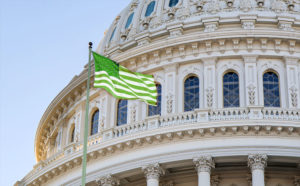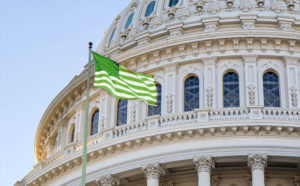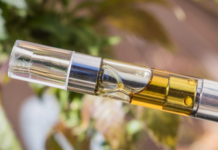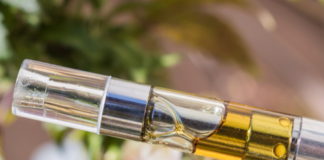June 28, 2019
 House Small Business Committee Chairwoman Nydia Velázquez along with Representatives Jared Golden and Dwight Evans introduced a package of legislation, (H.R. 3540, H.R. 3543, and H.R. 3544, to remove marijuana from the Controlled Substances Act and to extend several Small Business Administration (SBA) initiatives to small businesses operating in the cannabis sector.
House Small Business Committee Chairwoman Nydia Velázquez along with Representatives Jared Golden and Dwight Evans introduced a package of legislation, (H.R. 3540, H.R. 3543, and H.R. 3544, to remove marijuana from the Controlled Substances Act and to extend several Small Business Administration (SBA) initiatives to small businesses operating in the cannabis sector.
“Chairwoman Velázquez is now the first Committee Chair ever to introduce legislation that would end the federal marijuana prohibition,” said NORML Political Director Justin Strekal. “As this nascent industry begins to grow, federal policy should strive to reduce roadblocks for those qualified entrepreneurs who have historically been the targets under the criminalization of cannabis. Enterprising individuals who would benefit most from the critical resources that the Small Business Administration provides must not be discriminated against as a matter of principled fairness and opportunity.”
At the time of introduction, Chairwoman Nydia Velázquez said, “As our society continues to move the needle on this issue, we must recognize that legal cannabis businesses are often small businesses that fuel local economies and create new jobs. That is why I am pleased to introduce legislation to extend affordable lending options to small businesses that operate in the cannabis space, while simultaneously recognizing the structural disadvantages facing entrepreneurs from communities of color.”
This legislative package is introduced on the heels of a Committee on Small Business hearing which discussed the positive impact that the SBA could have if it were able to engage with small businesses in the rapidly growing, state-legal cannabis marketplaces.
Thirty-three states, Washington, D.C. and the U.S. territories of Guam and Puerto Rico have enacted legislation specific to the physician-authorized use of cannabis. Moreover, an estimated 73 million Americans now reside in the ten states where anyone over the age of 21 may possess cannabis legally. An additional thirteen states have passed laws specific to the possession of cannabidiol (CBD) oil for therapeutic purposes.
To date, these statewide regulatory programs are operating largely as voters and politicians intended. The enactment of these policies have not negatively impacted workplace safety, crime rates, traffic safety, or youth use patterns. They have stimulated economic development and created hundreds of millions of dollars in new tax revenue.
Specifically, a 2019 report estimates that over 211,000 Americans are now working full-time in the cannabis industry. Tax revenues from states like Colorado, Oregon, and Washington now exceed initial projections. Further, numerous studies have identified an association between cannabis access and lower rates of opioid use, abuse, hospitalizations, and mortality.
You can read more in the release issued by the Committee on Small Business here.











